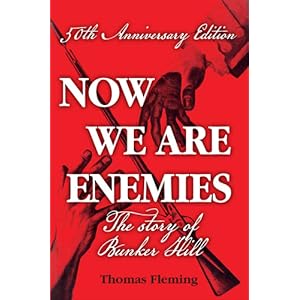Channelling George Washington: The Polarization Problem

“Polarization, polarization! That’s all I hear coming out of my namesake town. If it gets any worse, I’ll start thinking everyone in Congress is planning to become Arctic or Antarctic explorers!”
“It’s the buzzword of the hour, no doubt about it.”
“We had a similar problem during the Revolution. In some ways the brawl between loyalists and rebels was worse than the current uproar of Democrats vs Republicans.”
“I just reviewed a book called Tories. The author says it was the first American civil war.”
“That’s a bit of a stretch. The loyalists were only about fifteen percent of the population. Those who were willing to fight were even fewer. You can’t have a civil war with lopsided statistics like that.”
“But the feelings between the two sides were pretty violent, weren’t they?”
“That’s understandable. The Tories were rooting for the King and his army and navy to win the war. If they succeeded, a lot of rebels were going to be hanged, and their property confiscated, their wives and children turned into beggars. That’s the way the British suppressed revolutions in Scotland and Ireland.
“That didn’t arouse friendly feelings, I’m sure.”
“That’s an understatement. Some loyalists called 1777 the ‘Year of the Hangman.’ They saw that the three sevens resembled gibbets. It isn’t surprising that these angry feelings got out of control on our side. Some loyalists were coated with tar and feathers. Others spent a lot of time in jails. I never spoke out against these excesses. But I tried to set an example of a better way to handle the quarrel with my treatment of a good friend, Bryan Fairfax.”
“Was he related to your friend George William Fairfax, the owner of Belvoir—your neighbor at Mount Vernon?”
“He was George William’s half brother. They were all related to Lord Fairfax, who had come to Virginia in 1747 to take possession of some 5 million acres the King had granted his family.”
“I suspect that Bryan was a loyalist.”
“It’s hardly surprising. He was in line to inherit the title, if he survived his older half brother. Bryan was four years younger than I was. He was a sensitive, idealistic man, who was horrified by the war that had erupted. While I was grappling with the problems of the army at Valley Forge, he suddenly turned up on my doorstep.”
“Not the best timing in the world.”
“That’s another understatement. I was being criticized by a lot of congressmen and a circle of officers in the army, who specialized in sneering at me as ‘The Great Man.’”
“You had a slew of motives to treat Mr. Fairfax very harshly.”
“Too true. But I couldn’t do it. He was an old friend. He wasn’t supporting the Revolution. But he had never committed a hostile act against it. He didn’t try to convince other people to change sides. I greeted him hospitably, and asked why he was there.”
“What did he say?”
“He wanted me to arrange for him to pass through our lines and join the British in New York City, which they controlled. He hoped to arrange passage to England to see if he could persuade the British leaders to accept a negotiated peace.”
“That was a very large—and dangerous—favor.”
“Nevertheless, I did it. A few months later, I learned he had returned to Virginia. He was so discouraged by the hatred of Americans he encountered among British officials in New York, he gave up and went home again. A few weeks later, he wrote me one of the most flattering letters I ever received.”
“Can you read it to us?”
“‘At a time when your popularity was of the highest and mine at the lowest and when it is common for men’s resentments to run high against those who differ with them in opinion, you should act with your wonted kindness towards me hath affected me more than any favor I have received; it could not be believed by some in New York, it being above the run of common minds.’”
“A wonderful letter. Did you answer it?”
“I told him I had too good an opinion of his sincerity and candor to believe he was capable of unmeaning professions and speaking a language foreign from his heart. I answered in the same way, speaking from my heart.
“Would you read that too?”
“The friendship I ever professed and felt for you, met with no diminution from the difference in our political sentiments. I know the rectitude of my own intentions, and believing in the sincerity of yours, lamented, though I did not condemn, your renunciation of the creed I had adopted. Nor do I think any person, or power, ought to do it, whilst your conduct is not opposed to the general interest of the people and the measures they are pursuing; the latter, that is our actions, depending upon ourselves, can be controlled, whilst the powers of thinking, originating in higher causes, cannot always be moulded to our wishes.”
“There is a principle that our polarization fanatics might well ponder. What happened to Bryan Fairfax?”
“Many years after the war, he inherited the dukedom and became the first American-born member of the House of Lords. He remained my friend—and a friend to England and America—to the day of his death.”